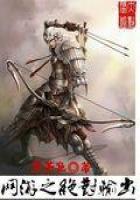Traits of Friendship OCTOBER 5th.--My cup of sweets is not unmingled: it is dashed with a bitterness that I cannot hide from myself, disguise it as I will. I may try to persuade myself that the sweetness overpowers it; I may call it a pleasant aromatic flavour; but, say what I will, it is still there, and I cannot but taste it. I cannot shut my eyes to Arthur's faults; and the more I love him the more they trouble me. His very heart, that I trusted so, is, I fear, less warm and generous than I thought it. At least, he gave me a specimen of his character to-day, that seemed to merit a harder name than thoughtlessness.
He and Lord Lowborough were accompanying Annabella and me in a long, delightful ride; he was riding by my side, as usual, and Annabella and Lord Lowborough were a little before us, the latter bending towards his companion as if in tender and confidential discourse.
`Those two will get the start of us, Helen, if we don't look sharp,' observed Huntingdon. `They'll make a match of it, as sure as can be. That Lowborough's fairly besotted. But he'll find himself in a fix when he's got her, I doubt.'
`And she'll find her self in a fix when she's got him,' said I, `if what I have heard of him is true.'
`Not a bit of it. She knows what she's about; but he, poor fool, deludes himself with the notion that she'll make him a good wife, and because she has amused him with some rodomontade about despising rank and wealth in matters of love and marriage, he flatters himself that she's devotedly attached to him; that she will not refuse him for his poverty, and does not court him for his rank, but loves him for himself alone.
`But is not he courting her for her fortune?'
`No, not he. That was the first attraction, certainly; but now, he has quite lost sight of it: it never enters his calculations, except merely as an essential without which, for the lady's own sake, he could not think of marrying her. No; he's fairly in love. He thought he never could be again, but he's in for it once more. He was to have been married before, some two or three years ago; but he lost his bride by losing his fortune. He got into a bad way among us in London: he had an unfortunate taste for gambling; and surely the fellow was born under an unlucky star, for he always lost thrice where he gained once. That's a mode of self torment I never was much addicted to; when I spend my money I like to enjoy the full value of it: I see no fun in wasting it on thieves and blacklegs; and as for gaining money, hitherto I have always had sufficient; it's time enough to be clutching for more, I think, when you begin to see the end of what you have. But I have sometimes frequented the gaminghouses just to watch the on goings of those mad votaries of chance--a very interesting study, I assure you, Helen, and sometimes very diverting: I've had many a laugh at the boobies and bedlamites. Lowborough was quite infatuated--not willingly, but of necessity,--he was always resolving to give it up, and always breaking his resolutions. Every venture was the `just once more': if he gained a little, he hoped to gain a little more next time, and if he lost, it would not do to leave off at that juncture; he must go on till he had retrieved that last misfortune, at least: bad luck could not last for ever; and every lucky hit was looked upon as the dawn of better times, till experience proved the contrary. At length he grew desperate, and we were daily on the look-out for a case of felo-de-se--no great matter, some of us whispered, as his existence had ceased to be an acquisition to our club. At last, however, he came to a check. He made a large stake which he determined should be the last, whether be lost or won. He had often so determined before, to be sure, and as often broken his determination; and so it was this time. He lost; and while his antagonist smilingy swept away the stakes, he, turning chalky white, drew back in silence and wiped his forehead. I was present at the time; and while he stood with folded arms and eyes fixed on the ground, I knew well enough what was passing in his mind.
`Is it to be the last, Lowborough?' said I, stepping up to him.
`The last but ONE,' he answered, with a grim smile; and then, rushing back to the table, he struck his hand upon it, and raising his voice high above all the confusion of jingling coins and muttered oaths and curses in the room, he swore a deep and solemn oath that, come what would, THIS trial should be the last, and imprecated unspeakable curses on his head, if ever he should shuffle a card or rattle a dicebox again. He then doubled his former stake, and challenged anyone present to play against him. Grimsby instantly presented himself. Lowborough glared fiercely at him, for Grimsby was almost as celebrated for his luck as he was for his ill-fortune. However, they fell to work. But Grimsby had much skill and little scruple, and whether he took advantage of the other's trembling, blinded eagerness to deal unfairly by him, I cannot undertake to say; but Lowborough lost again, and fell dead sick.
`You'd better try once more,' said Grimsby, leaning across the table. And then he winked at me.
`I've nothing to try with," said the poor devil, with a ghastly smile.
`Oh, Huntingdon will lend you what you want,' said the other.
`No; you heard my oath,' answered Lowborough, turning away in quiet despair. And I took him by the arm and led him out.
`Is it to be the last, Lowborough?' I asked, when I got him into the street.
`The last,' he answered, somewhat against my expectation. And I took him home--that is, to our club--for he was as submissive as a child, and plied him with brandy and water till he to look rather brighter--rather more alive, at least.
`Huntingdon, I'm ruined!' said he, taking the third glass from my hand--he had drunk the others in dead silence.
`Not you!' said I. `You'll find a man can live without his money as merrily as a tortoise without its head, or a wasp without its body.'
`But I'm in debt,' said he--`deep in debt! And I can never, never get out of it!'















